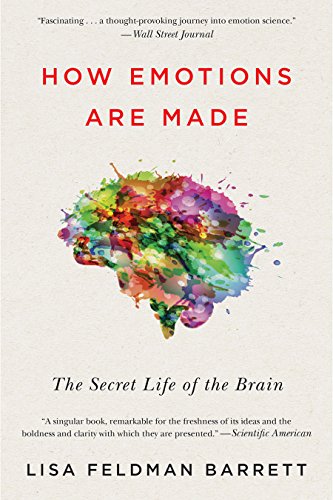How Emotions Are Made: The Secret Life of the Brain by Lisa Feldman Barrett Link to heading
Summary Link to heading
In “How Emotions Are Made: The Secret Life of the Brain,” Lisa Feldman Barrett challenges the classical view of emotions as automatic, universal responses hardwired into the human brain. Drawing on interdisciplinary research from neuroscience, psychology, and anthropology, Barrett presents the theory of constructed emotion. According to this theory, emotions are not pre-programmed in the brain but are constructed in the moment through the interplay of various systems, including cultural and individual experiences. She explores how the brain uses past experiences, sensory information, and conceptual understanding to create emotional experiences, positing that emotions are highly individualized and contextual.
Review Link to heading
Barrett’s work is a groundbreaking contribution to the understanding of emotions, utilizing a scientific approach that is both accessible and comprehensive. The book has been praised for its clarity and engaging narrative, making complex scientific ideas understandable to a general audience. One of the strengths of the book is its challenge to traditional beliefs about emotions, prompting readers to rethink what they know about human feelings. However, some critics argue that the book might be too dense for readers with no background in neuroscience or related fields, potentially making it challenging to grasp thoroughly without additional study.
Key Takeaways Link to heading
- Emotions are not universal or biologically hardwired; they are constructed based on a variety of influences, including personal experiences and cultural context.
- The brain uses concepts to interpret sensory inputs and construct emotions in the present moment.
- Emotional experiences can be consciously altered by recognizing the construction process and adjusting one’s interpretation.
- Understanding the theory of constructed emotion can have practical applications in improving emotional intelligence and social interactions.
Recommendation Link to heading
This book is recommended for anyone interested in psychology, neuroscience, or the study of emotions. It would greatly benefit readers seeking to expand their understanding of how emotions work, particularly those in fields like psychology, cognitive science, and anthropology. While the book offers profound insights, readers with a non-scientific background might need to invest additional effort to fully appreciate its depth and complexity. Lisa Feldman Barrett provides a thought-provoking exploration that challenges conventional wisdom, making it a compelling read for those eager to explore a transformative view of emotions.
